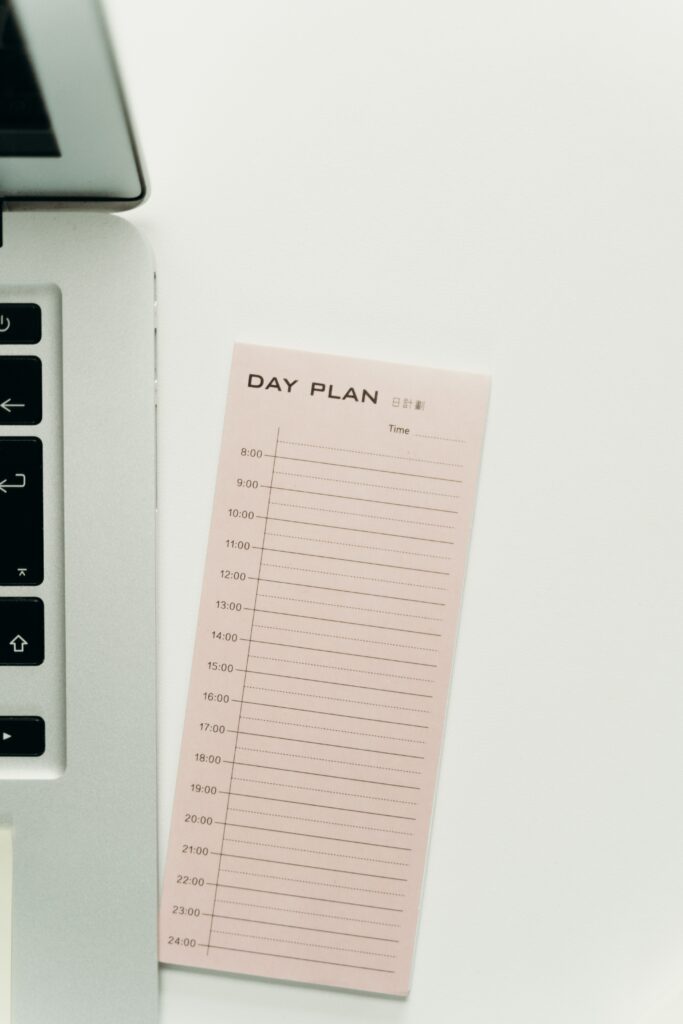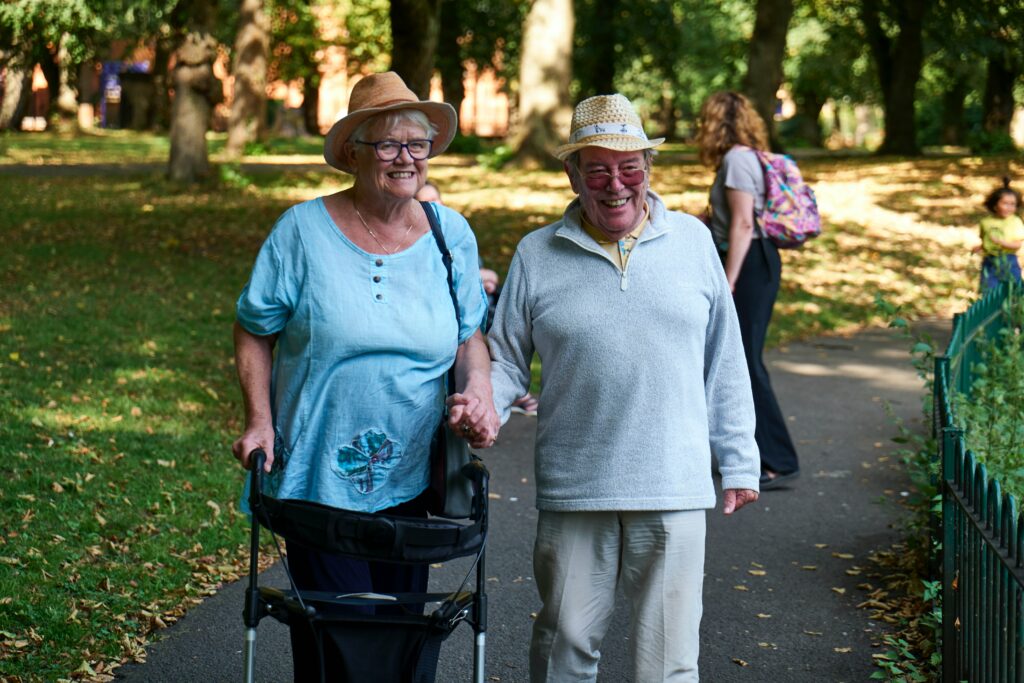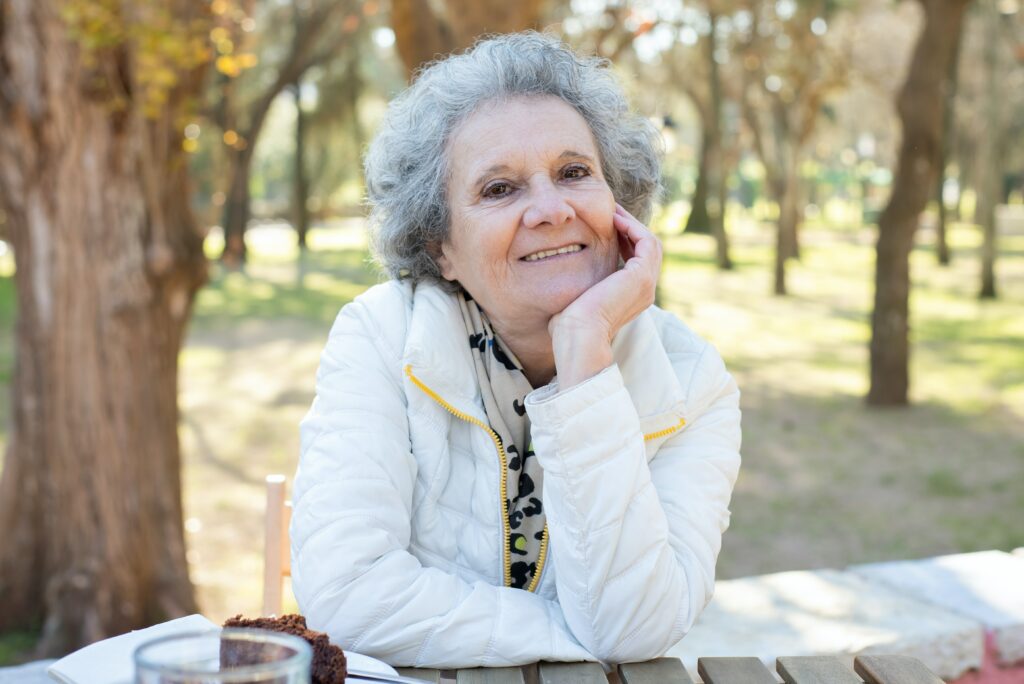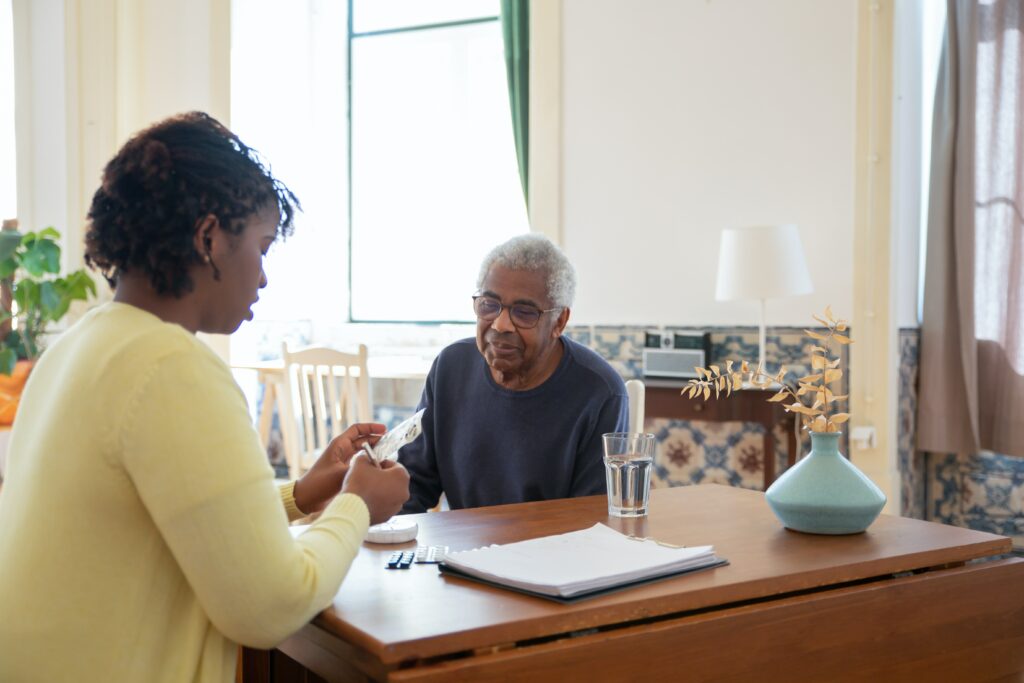
The truth of the matter is the older we get, the less in command we feel, especially in certain parts of our lives. For seniors, this is something way too common. For older adults, they can lose their ability to function correctly, whether it be cognitively, emotionally, or physically. They need help in focusing on a task or concentrating on doing routine chores. However, there is a simple solution. Whether you are a caregiver of an elderly patient or a concerned loved one caring for older parents, establishing a daily routine can be very helpful. Add tasks that are easy to do and simple to structure around other important tasks that need to be done. For example, playing a short game of checkers before settling down for an afternoon nap. If possible, ask for the senior’s input on what to add to the routine, including types of activities. Just remember that a daily routine for seniors should not feel like a rigid regimen.
Below is a sample of what a daily routine could look like:
- Wake up at 7:30 a.m.
- Take care of personal hygiene needs and get dressed
- Enjoy a balanced breakfast in the sunroom while listening to favorite music
- Take a walk around the neighborhood
- Tackle a puzzle or create artwork to share with family
- Pack a picnic lunch to take to the neighborhood park
- Run an errand
- Spend some quiet time reading or take a short nap
- Make dinner together and clean up afterwards
- Prepare and take a bath
- Watch a relaxing movie
- Go to bed at 10:30 p.m.
4 TOP BENEFITS OF A DAILY ROUTINE FOR SENIORS
Many seniors can benefit from creating and sticking to a daily routine. It provides several benefits to the senior and helps the caregiver maintain stability throughout the day. Although there may be several benefits, here are the three main benefits for seniors who stick to a daily routine.
1. Reduced stress and anxiety
When seniors keep to a routine, they are more likely to lower stress levels and kick anxiety to the curb. Routines can also keep seniors calm and comfortable while eliminating chances of wandering about what to do next. Caregivers should be there to assist throughout the day and make sure everything goes as planned. Even when there is no plans but to relax and enjoy the day.

2. Safety and security Increased
It is important to create a safe and secure environment for seniors, especially for those who are mentally struggling, due to memory and cognitive issues that have developed. It is also easier for seniors to cope with everyday challenges when they are aware schedules. For those who are beyond understanding of schedules or daily plans because of dementia or other cognitive declines, keeping to a routine can still help with unpredictable events and provide security.
3. Improved sleep
The next benefit to discuss is improved sleep, which is a big one. Everyone needs sleep, yet for seniors, this is essential. According to national studies, sticking to a daily routine will improve the quality of a senior’s sleep patterns. In fact, a WebMD article called “Daily Routines Help Seniors Sleep Better”, stated, “doing the same basic activities, like eating, dressing, and bathing at the same time every day, improves sleep quality.” It can also help seniors to fall asleep and remain asleep better.
4. Benefits Caregivers
Routines do not only benefit the senior, but it can help caregivers to do their job. Taking care of a loved one or a patient that needs constant care can be overwhelming at times. The amount of tasks or duties needed to care for the senior may seem a lot, and is also a big responsibility to take on. However, when there is a daily routine in place, then things can go much more smoothly throughout the day. It may often reduce the burden in the planning process for each day. Plus, it takes a lot of pressure off the caregiver.
A summary of the benefits that a daily routine for seniors can do:
- Increased mobility.
- Higher energy levels.
- Improved mood.
- Reduced stress.
- Improved cognitive function.
The Importance of Maintaining a Daily Routine for Seniors
Below are six successful tips to help seniors maintain a daily routine:

Plan a day outdoors: Getting some Vitamin D and sunshine is good for everyone. But for seniors, it could help their bodies become align with nature. We all benefit from the fresh air and sunlight. But enjoying a day outdoors can also help seniors to get a better night’s sleep and wake up refresh.
Make meaningful moments: Every day should be full of meaning. Stay consistent throughout the day. Make sure you have time to spend with close family, a loved one that you haven’t seen in a bit, or talk to a neighbor that you’ve been meaning to share a new recipe. Take time to write in a journal, read a book, or just do things that will brighten your day.
Move your body: The moment seniors get up, they should move their bodies. This will help them keep their activity levels high. It can also improve their heart rate up, blood flowing, oxygen moving, and their muscles, organs, and brain functioning well. Exercising also helps us detox our body and keeps the heart pumping strong.
Be consistent: Do the same task daily and do it at the same time. For example, keep your wake time, meal time, and sleep time consistently at the same time, each day. Things do happen throughout the day that are unexpected and there will be peaks and dips in a daily routine; but for the most part, try to keep to the schedule. By doing so, you will align your body with nature and won’t feel bogged down when mishaps in the schedule do happen. Being consistent can help seniors plan ahead and feel more relaxed when unexpected situations happen.
Restore your mental health: It’s true, that when we sleep, your bodies get recharged for another day, but there are other ways as well to recharge your body and mind. Whenever we do physical activities as part of a daily routine, we not only benefit our bodies, but we keep our mind active too. Engaging in activities helps give us a sense of purpose, rejuvenates the spirit, and calms our soul. Just by taking a short 10-minute walk in the cool of the afternoon or doing yoga off the porch can recharge your body and renew your energy.
Scheduling Routine in an Assisted living facility
A daily routine for those who are residents of an assisted living home or facility may be more structured than a senior living in their own home. For one, seniors who live there usually have a morning wake-up call or a caregiver that assists them in morning routines. This includes, personal hygiene, dressing, and providing a balanced breakfast. Some assisted living facilities have all meals prepared for all residents in the cafeteria or dining areas.

After breakfast is done, there may be arts and craft time, Bingo, or morning worship, depending on the day. Seniors may receive help with light housekeeping and laundry as well. Some assisted living homes offer transportation help, such as going to the grocery store, shopping centers, doctor visits, and other errands. Sometimes, transportation is available for specific outings on certain days of the week, like visiting family and friends that live nearby.
At assisted living places or even nursing homes, the staff is usually in charge of medication. However, seniors who can handle there own pills, may just be reminded to take them. There is often specific times for medication reminders or distribution of pills during the day and evening. So, as you can see, daily routines in assisted living facilities are definitely more structured and on a specific time schedule for senior living.
Keeping to a Schedule for Seniors with Dementia
Not knowing what to expect throughout the day is often common for those with dementia. When working with people that have been diagnosed with dementia, keeping to a schedule is one of the best ways to provide order and stability to their lives. Routines can help them stay on track with average every day tasks and give them a sense of comfort, especially when they can’t always anticipate what is next. Similar to seniors living in assisted living facilities, dementia patients need a familiar routine every day. Keeping to the same daily habits, like taking a bath before bed or eating dinner at 5 pm each night helps seniors or older adults with dementia feel safe and secure. Seniors with dementia would also be less likely to become disoriented or confused when an established daily routine is in place.

According to the Alzheimer’s Project, “Persons with dementia thrive on familiarity.” Being familiar to their surrounding and what they do daily will help, since most people with dementia gradually decline both physically and cognitively. It become a challenge to do simple tasks. So, keeping to a schedule or a routine will help them retain a sense of control and independence, to a degree. It may even help build up their long-term memory in their brain. Just like remembering to brush their teeth or use the bathroom.
Coaching your Loved Ones to Good Health with Positive Outcomes
Sometimes seniors are stubborn or refuse to do simple tasks that you know they should. This is common among those who have been diagnosed with dementia or Alzheimer’s disease. The worst thing to do is pester or command them to do a task. By doing so, it an cause the senior to become even more upset or annoyed at the caregiver. What a caregiver should do is simply suggest or mention if they have done what you ask them to do, like taking an afternoon walk or brush their teeth before heading to bed. If their responds is no, them simply suggest it, without coming across harsh or demanding. Maybe if you walk with them, the “task” will be easier to complete for the senior. Caregivers can also coach their loved ones by encouraging them and explaining how good they will feel afterwards.
Coaching is sometimes difficult, especially if the senior has experienced cognitive declines, due to their condition. Sometimes they just may not want to do part of their routine for that day. This often happens with some senior adults that have been living alone for some time before needing a caregiver. Be patient and never give up. Continue to show compassion and be flexible with the daily routine. Offer to do something you know they will enjoy instead. Things do not always go as planned, and that’s okay. Every day will be an adventure and a new journey for the older adult. Having open “slots” throughout the day makes room for unexpected changes, because of a senior’s behavior. Below is a sample daily schedule for older adults and caregivers. Feel free to copy and paste. A Medication promping sheet is included.
Date: _________________
A.M.
12:00 (midnight)___________________________________
1:00_________________________________________________________
2:00_________________________________________________________
3:00_________________________________________________________
4:00_________________________________________________________
5:00_________________________________________________________
6:00_________________________________________________________
7:00_________________________________________________________
8:00_________________________________________________________
9:00_________________________________________________________
10:00_________________________________________________________
11:00_________________________________________________________
P.M.
12:00 (noon)______________________________________
1:00_________________________________________________________
2:00_________________________________________________________
3:00_________________________________________________________
4:00_________________________________________________________
5:00_________________________________________________________
6:00_________________________________________________________
7:00_________________________________________________________
8:00_________________________________________________________
9:00_________________________________________________________
10:00_________________________________________________________
11:00_________________________________________________________
Medication Prompting
Medication: ____________________________________________
Dose: _________________________________________________
Scheduled times to take: __________________________________
Prescribing doctor: ______________________________________
Additional notes about medication (take with food, etc.):

For those who are contemplating on becoming a caregiver, know that this is a very honored and worthy job, even when you may not always feel that way. It can be hard to cope with seniors who need extra help. Many caregivers do burnout. Here are some simple tips and resources for caregivers that need a helping hand.
Coping Strategies for Caregivers:
Walk 20-30 minutes a day- when you have time, get away and take a walk. get your mind away from work and just breathe in the fresh air. Doing this, it will lower your blood pressure, regulates your blood sugar, can improve your brain function. Making you energized to do your job well.
Take a short break- even for 5 minutes, look out the window, water a plant, or just go in a vacant room to breathe, slowly. If you are tech saavy, there is an app called Headspace that can provide short meditation breaks and help you focus.